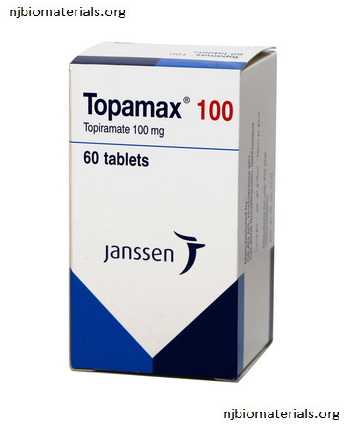Topamax (Topiramate)
What is Topamax
Topamax, also known by its generic name Topiramate, is a medication used primarily to treat epilepsy and prevent migraines. It is also used off-label for various other conditions, such as mood disorders, weight loss, and certain types of chronic pain. The medication can be taken in tablet or sprinkle form and is often used as a long-term treatment.
Topiramate affects the brain by inhibiting the transmission of abnormal electrical signals that can lead to seizures or migraine headaches. It does this through several mechanisms: blocking certain sodium channels, enhancing the activity of gamma-aminobutyric acid (GABA), and inhibiting a neurotransmitter called glutamate. These actions stabilize brain activity, reduce the likelihood of seizures, and decrease the over-excitability of the brain, which is thought to be involved in migraine attacks.
Recommendations
Topamax is commonly prescribed for the following conditions:
• Epilepsy;
• Migraine prevention;
• Bipolar disorder;
• Weight loss;
• Other off-label Uses.
The dosage of Topamax is usually started low and gradually increased to minimize the risk of side effects. It’s typically taken once or twice daily, with or without food, and must be taken regularly to be effective.

Precautions and Contraindications
Before starting Topamax, several health conditions should be considered, as they may affect the safety or efficacy of the medication:
• Kidney problems;
• Metabolic acidosis;
• Glaucoma;
• Pregnancy;
• Mood Disorders.
Your doctor will assess your overall health and medical history before prescribing Topamax to ensure that it is a safe and appropriate treatment for you.
Interactions
Topamax can interact with other medications, potentially reducing its effectiveness or increasing the risk of side effects. It is important to tell your healthcare provider about all medications, supplements, and over-the-counter drugs you are taking. Common interactions include:
• Oral contraceptives;
• Other anticonvulsants;
• Sedatives and alcohol;
• Metformin;
• Lithium;
• Diuretics.
Make sure to review all your current medications with your healthcare provider to avoid interactions and ensure safe treatment.
Side Effects
Like all medications, Topamax can cause side effects. Many side effects are mild and go away over time, but some can be more serious and may require medical attention. Common side effects include:
• Tingling or numbness;
• Drowsiness or fatigue;
• Dizziness;
• Weight loss;
• Memory or concentration problems;
• Appetite loss.
Serious side effects are less common but can include:
• Kidney stones;
• Vision problems;
• Metabolic acidosis;
• Hyperammonemia;
• Suicidal thoughts.
If you experience any severe side effects, especially vision changes or suicidal thoughts, contact your healthcare provider immediately.
Before You Start Topamax Treatment
Before starting Topamax, your healthcare provider will evaluate your medical history and discuss any potential risks. This may include:
• Kidney function tests;
• Eye exams;
• Mood and mental health screening.
It is important to take Topamax exactly as prescribed and not to stop taking it suddenly, as this could increase the risk of seizures or other side effects.
Overdose
An overdose of Topamax can be serious and may require immediate medical attention. Symptoms of an overdose include:
• Severe drowsiness or loss of consciousness;
• Speech problems or confusion;
• Seizures (in those who do not normally have seizures);
• Blurred vision or severe eye pain;
• Rapid breathing or difficulty breathing.
If you suspect an overdose, seek emergency medical help immediately. Overdosing on Topamax can lead to serious complications, including metabolic acidosis or coma.
While Topamax can be highly beneficial, it also comes with potential side effects and interactions, especially when taken long-term. Regular monitoring by your healthcare provider is essential to managing these risks and ensuring the safe and effective use of Topamax. Always follow your doctor’s instructions carefully, and report any concerning side effects promptly to avoid complications.